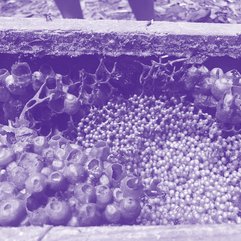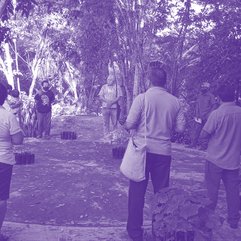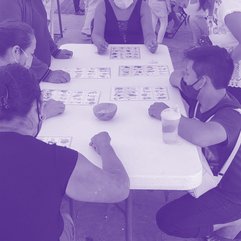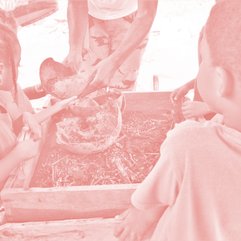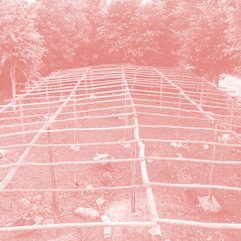Seperation Impossible
Theater performance for the International Day against Violence against Women
19.00-22.00
Save the Date
for adults
in German/in English

If women in partnerships experience violence from their current or former partner, they should leave as quickly as possible. But what if this is not possible - because the perpetrator and the victim have children together? And mothers have to remain dependent on the perpetrator as a result?
T R E N N U N G IMPOSSIBLE (SEPARATION IMPOSSIBLE)
Director: Heinrich Horwitz
With: Oska Melina Borcherding, Lena Whooo, Rike Übermuth, and Valerie Renay
If women in partnerships experience violence from their current or former partner, they should leave as quickly as possible. But what if this is not possible - because the perpetrator and the victim have children together, or if mothers have to remain dependent on the perpetrator as a result?
Violence against mothers is prevalent in Germany - yet it is a topic that is rarely discussed. Fathers have a right to have contact with their children. However, many perpetrators exploit this right to continue exercising control over their (ex-)partners.
Affected mothers often have no protection, and family law is not enough. Authorities such as youth welfare offices and family courts are not trained enough to recognize these dependencies and often simply ignore the context of the violence. Help is often only available when the situation has already escalated. These women remain unheard for years - institutions maintain and perpetuate violent structures. Mothers rarely dare to speak publicly about their stories: Out of fear of further violence, but also out of concern for the welfare of their children.
On the International Day against Violence against Women, their stories will find a stage. The performance T R E N N U N G IMPOSSIBLE (SEPARATION IMPOSSIBLE) is based on interview transcripts from four victims. Director Heinrich Horwitz will work with four actors to give these stories visibility in a creative rendering. The herstories are intended to contribute to mutual empowerment. Actors - on behalf of those affected - take up the space that these stories deserve.
Performance in German, for English parts a German translation will be provided.
///
JINEOLOJÎ - THE SCIENCE OF WOMEN AND LIFE
Dance Performance by Sarah Zilan Koessler
What knowledge is given value and what knowledge is not even recognized as knowledge?
All areas of life, including those that are neither felt nor lived by men in the patriarchy, are determined by them. In history books, in the legal system, in science, their system is justified and stabilized.
Jineolojî, or the science of women and life, emerged in the liberated mountains of Kurdistan, in resistance, far away from the capitalist, colonial and patriarchal influences of industrial-modern cities.
It challenges us to question our understanding of the world with the aim of a feminist, ecological and communal future! The origin of Jin Jiyan Azadi.
///
Separation impossible - a taz Talk with:
Nicole Opitz (taz editor on gender, family policy, gender justice) will speak with experts on the situation of affected mothers and what needs to change.
Jacinta Nandi, columnist and author of "50 Ways to Leave Your Husband" (Edition Nautilus).
Asha Hedayati, lawyer for family law and activist for the protection against violence.
Stefanie Ponikau, deputy chairwoman of the board of Die MIAs - Mothers' Initiative for Single Parents and member of the Istanbul Convention Alliance.
Katja Musafiri, taz editor and board member of Flamingo e.V., a network for refugee women and children.




